Project Highlights
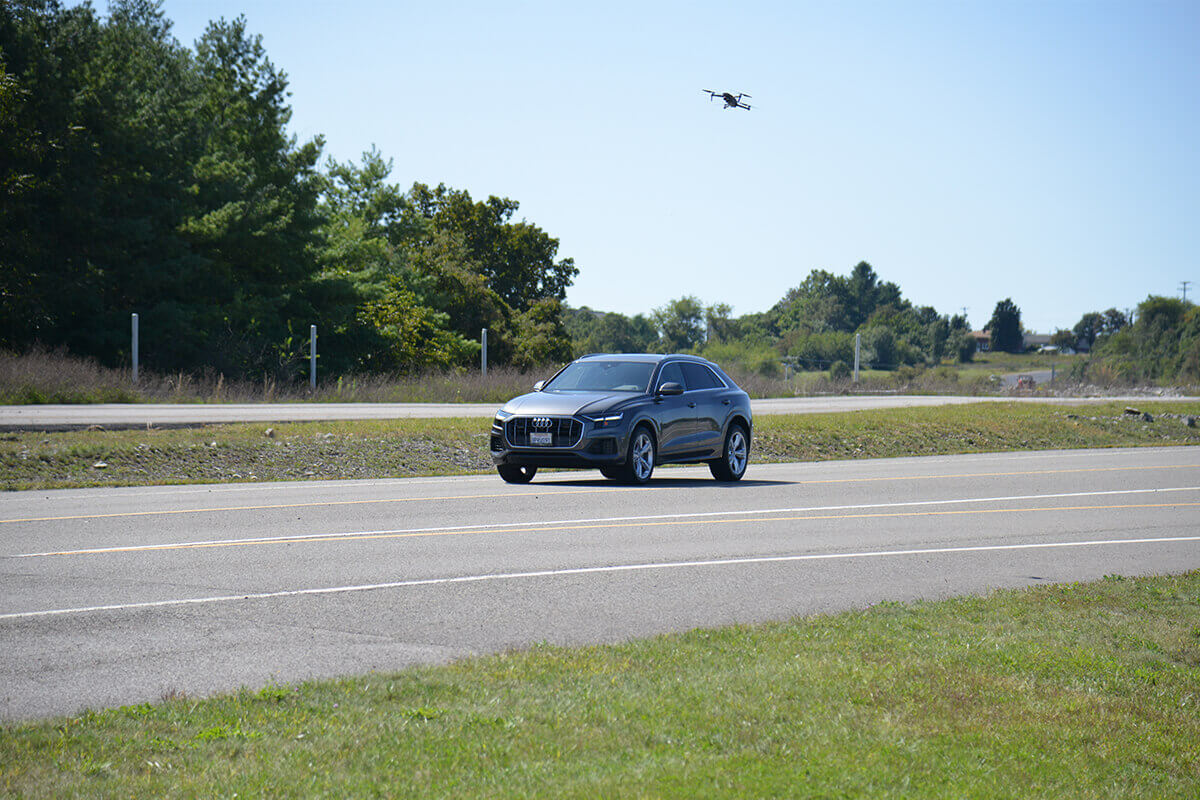
Army Unmanned Aerial Systems Market Demonstration
VTTI was awarded a contract to manage a market research exercise of current Unmanned Aerial Systems (UAS) and hosted members of the National Advanced Mobility Consortium (NAMC) to showcase the Virginia Smart Roads and facilities and the ability to serve as a testing area for ground and aerial vehicles.

Assessment and Comparison of Advanced Driver Assistance System Safety Testing Procedures
Currently, there is no existing single standard when it comes to ADAS and crash avoidance testing procedures, which means each testing program that assesses and rates advanced safety systems may have its own testing and rating process. As such, the goal of this project was to examine differences between ADAS test procedures conducted by test programs across the globe.

A Data-Driven Approach to the Development and Evaluation of Acoustic Electric Vehicle Alerting Systems for Vision-Impaired Pedestrians
While quiet vehicles may seem to be desirable, their lack of noise can pose a danger to pedestrians.

Developing an Eco-Cooperative Automated Control System (Eco-CAC)
The main objective of the Center for Sustainable Mobility's Eco-CAC project is to significantly reduce vehicle energy consumption.

Developing Statistical Models and Interactive Tools to Turn Crash Data Into Insights for Improved Road Safety
This project, led by NORC and supported by VTTI, aims to modernize how crash data is collected, analyzed, and visualized to improve road safety nationwide. The research is sponsored by NHTSA.

Distracted Driving Research
No one knows better than VTTI the extent of driving distraction as the cause of crashes. Driver distraction is a major contributing factor to crashes, which are a leading cause of death for the US population under 35 years of age. Driving is a visual task and non-driving activities that draw the driver's eyes away from the roadway (such as texting, dialing, and use of a laptop or dispatching device to perform complex tasks) should always be avoided.

An Examination of Emergency Response Scenarios for Automated Driving Systems
Public safety officials, such as law enforcement, fire and rescue, and emergency medical personnel routinely interact with a broad spectrum of public and private vehicles to protect people, to investigate crimes or crashes, and to save lives.
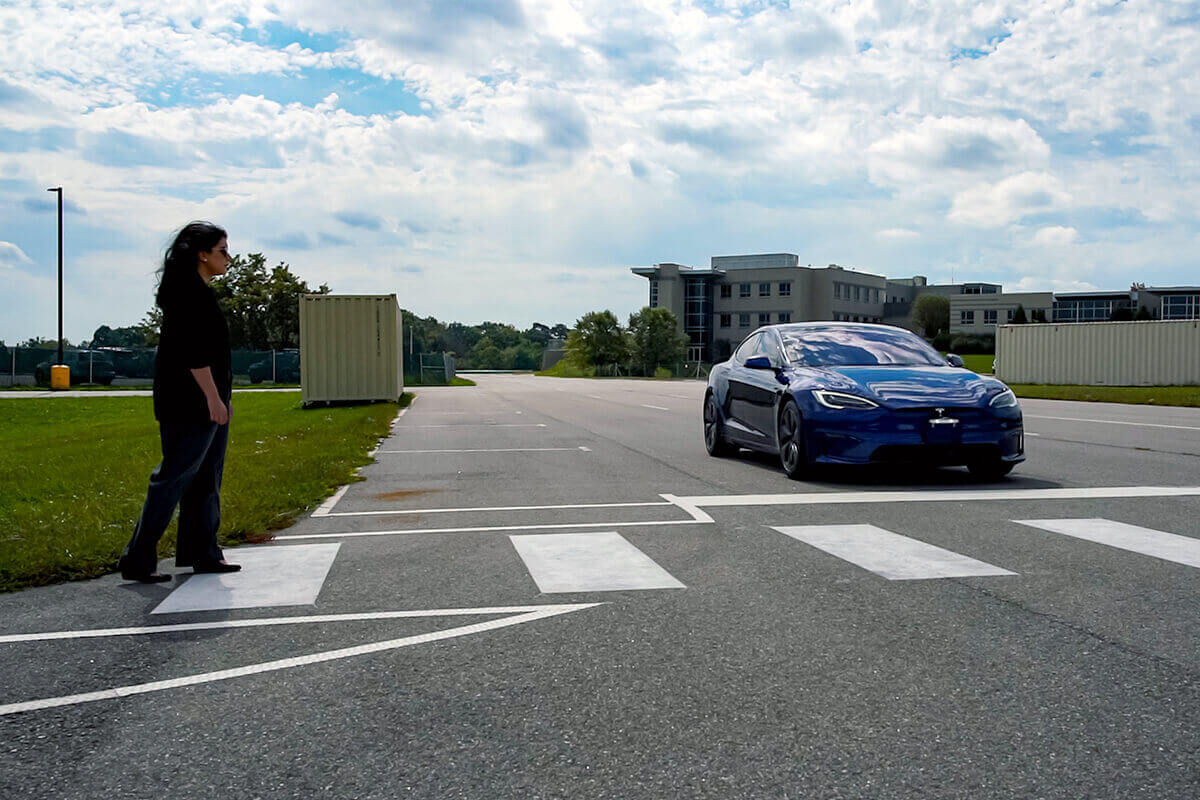
Impact of Automated Vehicle External Communication on Other Road User Behavior
Drivers and construction workers have always communicated with each other through various methods such as hand gestures and eye contact. With the advent of highly automated vehicles (HAVs) on the horizon, the transportation industry is interested in the ability of these vehicles to communicate their intent to other road users.
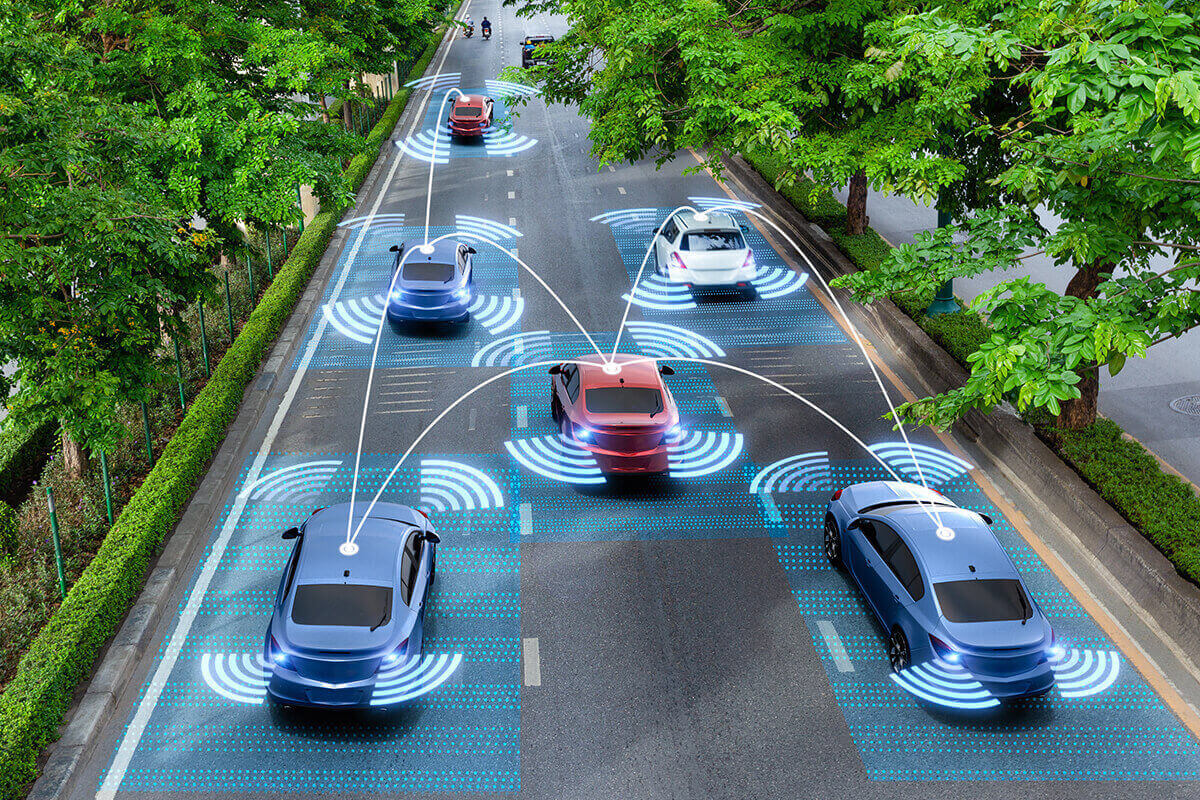
The Impact of C-V2X on Transportation System Efficiency, Safety, Energy, and Environment
The objective of this project is to assess the environmental effects of a wide deployment of C-V2X and to evaluate the potential safety effects of C-V2X on various traffic participants.

INTEGRATION Large-scale Modeling and Testing of C-V2X Applications
The objective of the research is to capture the interdependency of the communication and transportation systems to better understand the impact of vehicle-to-everything (V2X) communication performance on V2X applications.
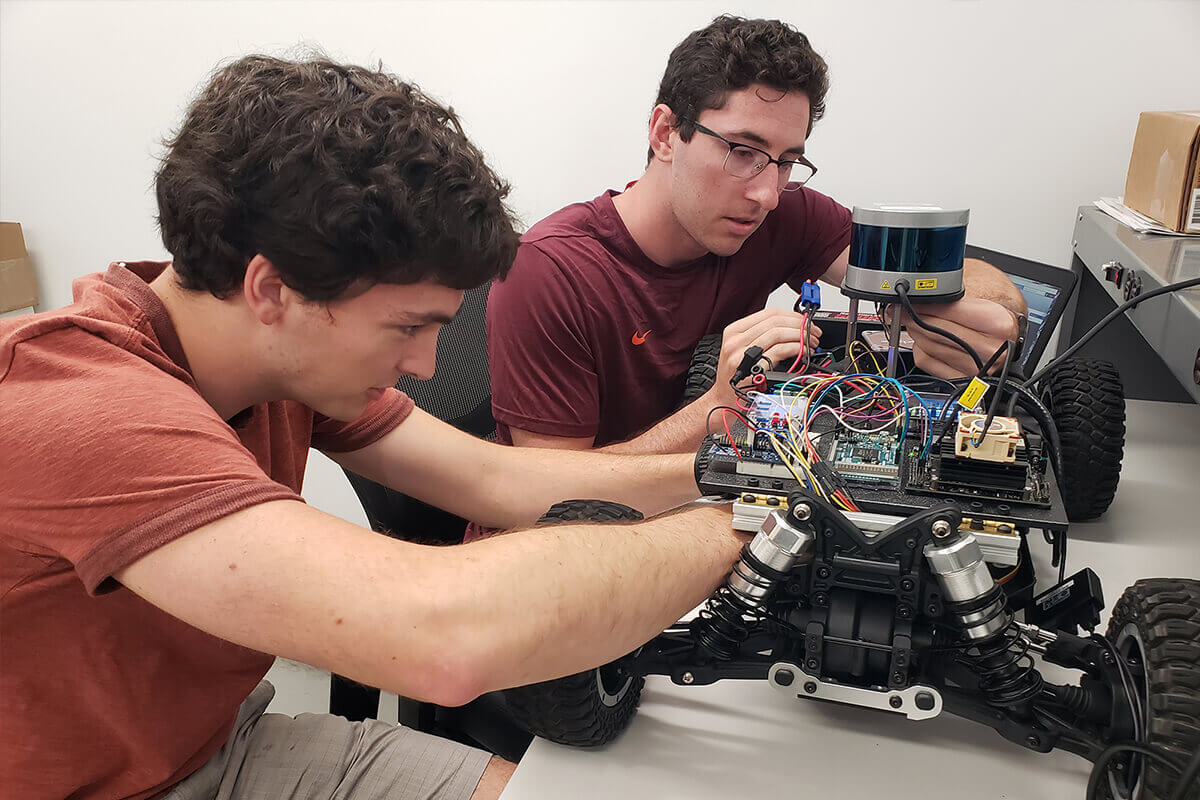
InternHUB
The InternHub program at VTTI provides Virginia Tech students with the opportunity to collaborate with influential automakers on projects that seek to solve the industry's most prominent transportation efforts.

Investigating the Health Impacts of Outdoor Lighting
VTTI is currently working on a project with the Department of Energy to quantify the effects of outdoor lighting that utilizes Solid State lighting (LEDs) on melatonin in humans.
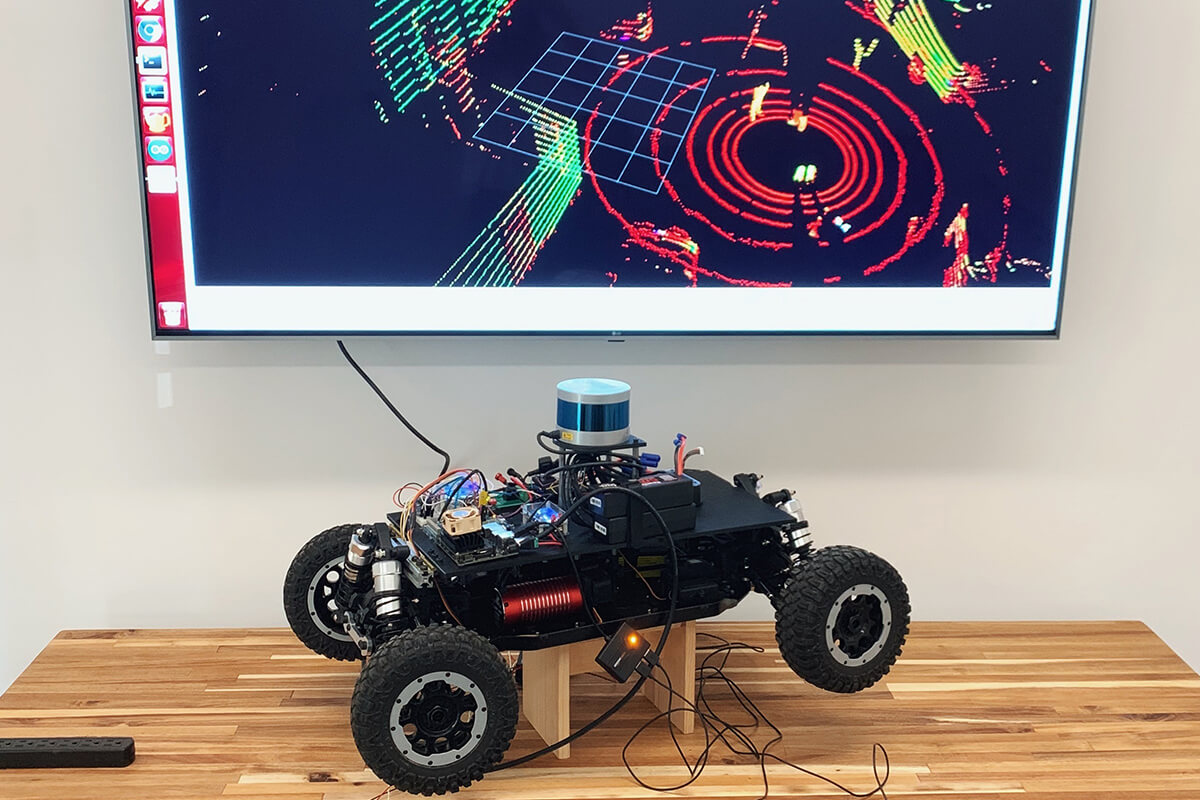
LiDAR and Radar Fusion for Scaled Vehicle Sensing
To solve resolution issues when utilizing radar on a small scale, VTTI has proposed a high-level sensor fusion method between radar and automotive-grade LiDAR.
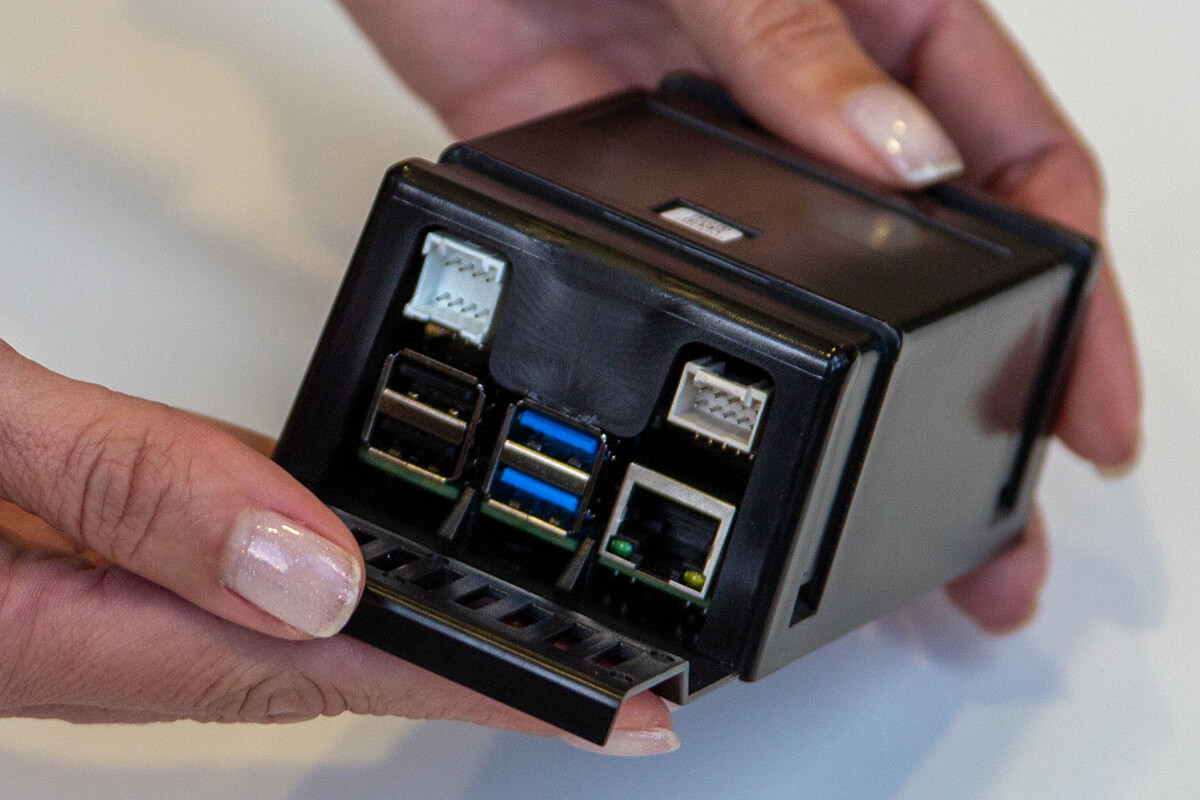
The MicroDAS
The MicroDAS was designed to be small, cost effective, and easy to install in a wide variety of vehicles.

Multi-Decadal Decarbonization Pathways for U.S. Freight Rail
There is currently no state-of-the-art tool widely available to lead the effort of cutting emissions in freight rail, so this ongoing project is developing open-source software to assess important variables in freight rail carbonization.

Pavement Friction Management Support Program
The Pavement Friction Management Support Program is working to introduce state-of-the-art methods for measuring roadway friction.

Pavement Surface Properties Consortium — Managing the Pavement Properties for Improved Safety
The objective of this project is to bring together pavement design and evaluation experts with maintenance and safety professionals to ensure that the work of the pavement community has an impact on striving for zero deaths on U.S. highways.

A Pilot Sentinel Surveillance System for Drug Use by Drivers in Crashes: Lessons Learned and Recommendations
In collaboration with the AAA Foundation for Traffic Safety, VTTI developed and implemented a pilot sentinel surveillance system at two Level I trauma centers: one in Roanoke, VA, and the other in Winston-Salem, NC.
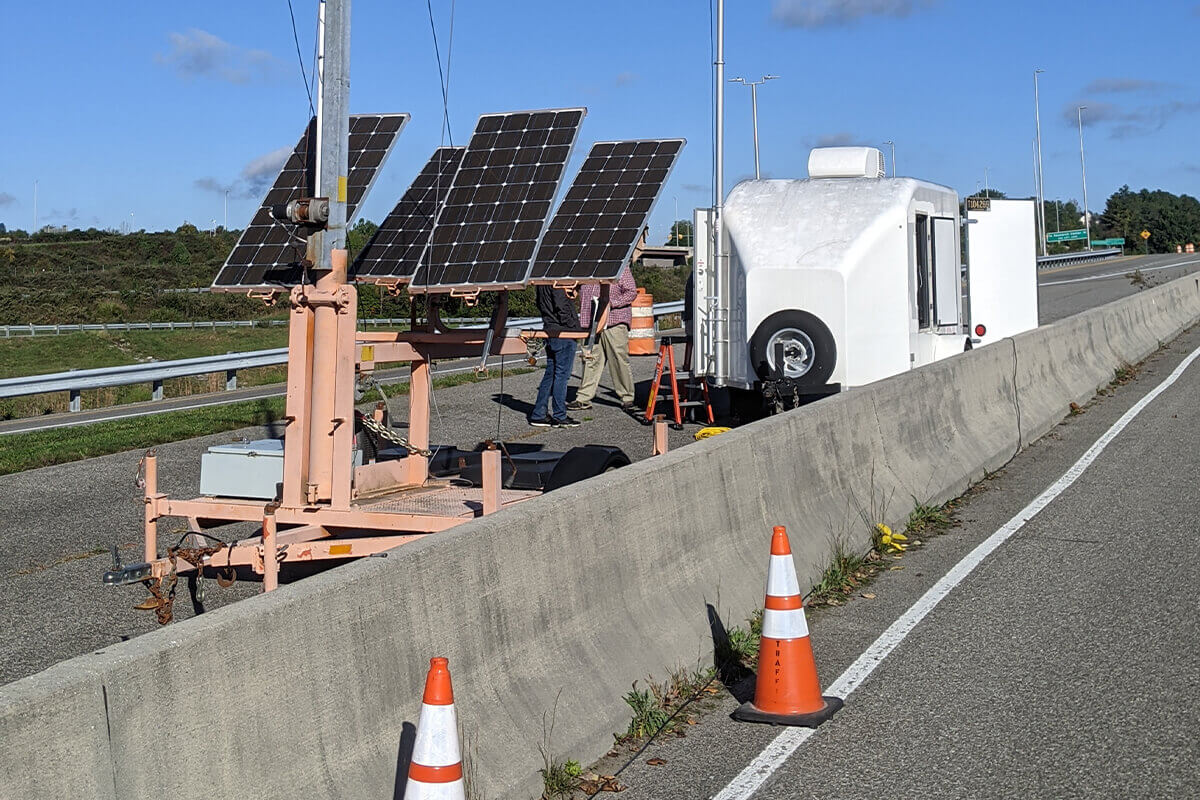
Roadside Truck Placard Reader for Advance Notice and Response at Safety-Critical Facilities
This project is analyzing the performance of an Automated Placard Reader System (APRS) under real-world operating scenarios.
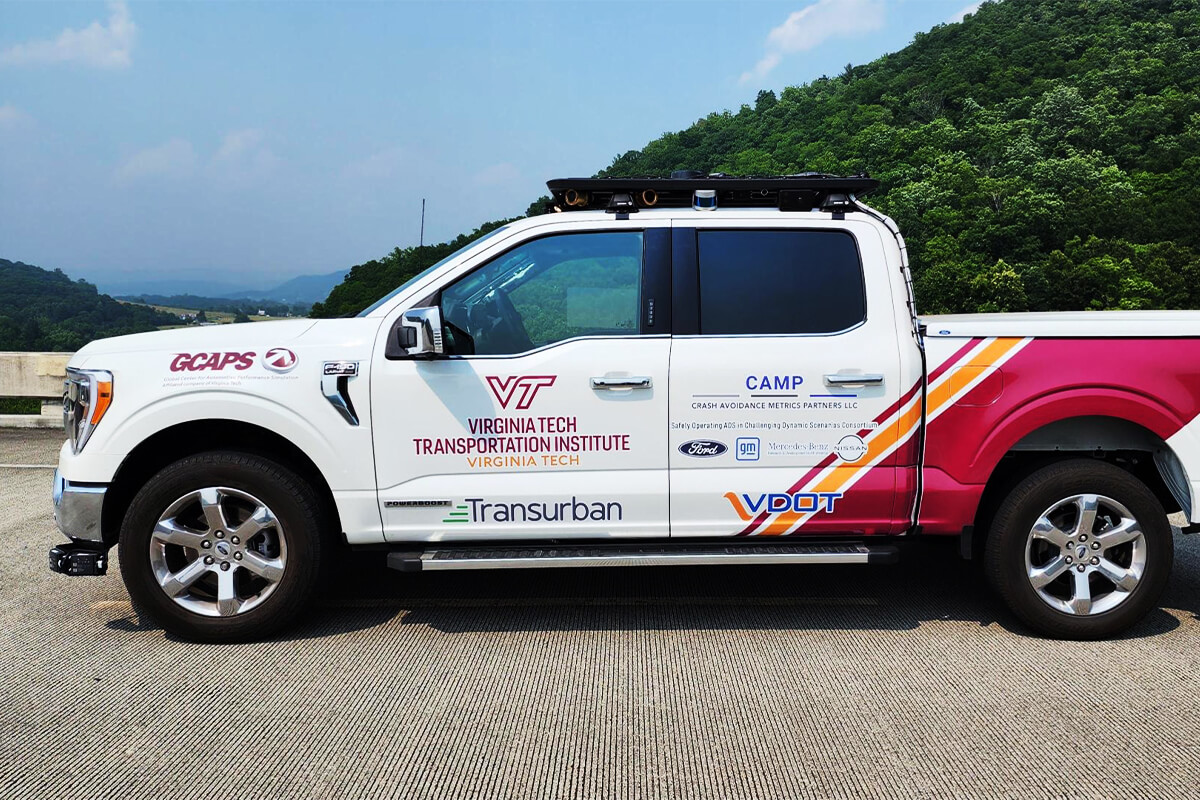
Safely Operating ADS in Challenging Dynamic Scenarios
This project focuses on demonstrating how vehicles equipped with automated driving systems (ADS) can safely interact with public services and infrastructure providers.
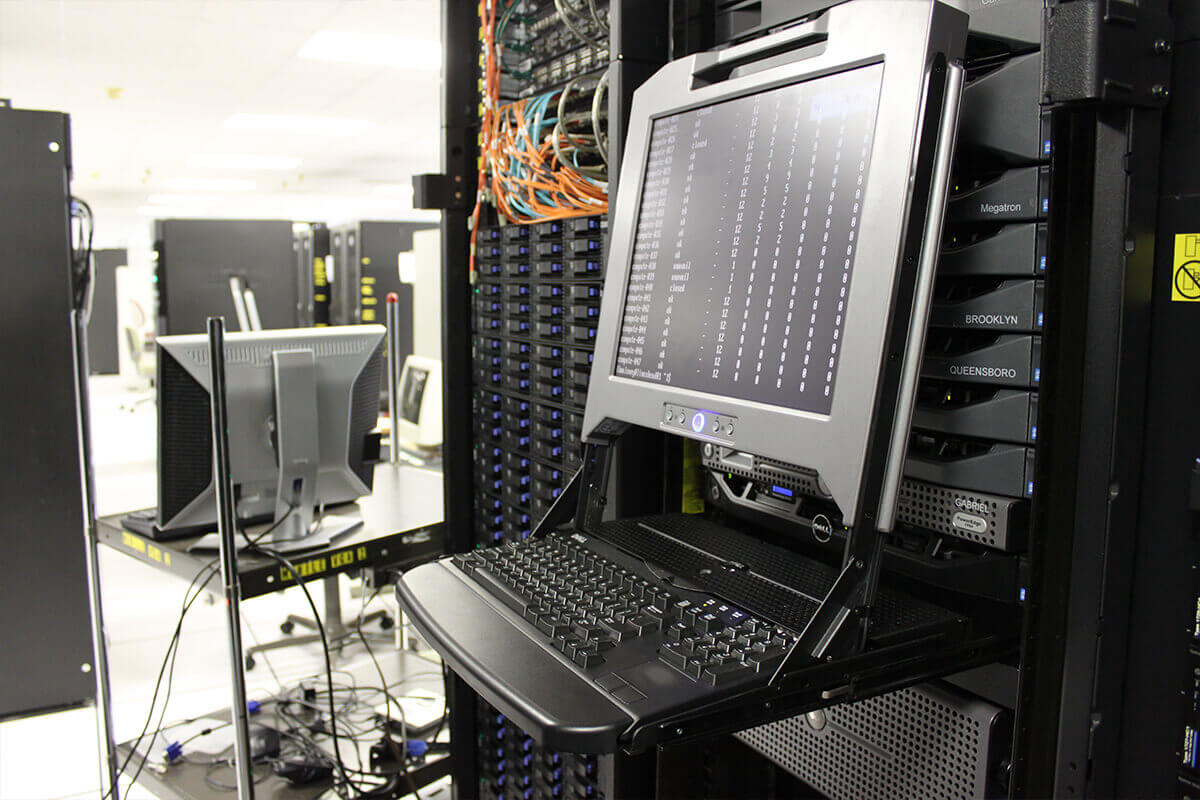
Scientific Data Warehouse
VTTI's Scientific Data Warehouse supports the massive amounts of data generated by naturalistic driving studies.

Sensor Degradation Detection Algorithm for Automated Driving Systems
GCAPS is currently working on creating a sensor degradation detection algorithm through simulation established by physical testing and naturalistic data.

State of Supply Chain Gap Analysis Report: Survey of Stakeholder Needs for Achieving Supply Chain Resiliency
>Recent international conflicts, natural disasters, and COVID-19 have exposed fragility in our nation's supply chain. In conjunction with growing demand, disjointed logistics, worker shortages, and congested roads and ports, these factors threaten our environment, economic prosperity, equity, human health, and national security. A bold, comprehensive program is needed to improve weak links in the supply chain to move goods across all delivery points—whether rural or urban, near or far from a port or highway, easy or difficult to navigate, or in prosperous or economically challenged areas.
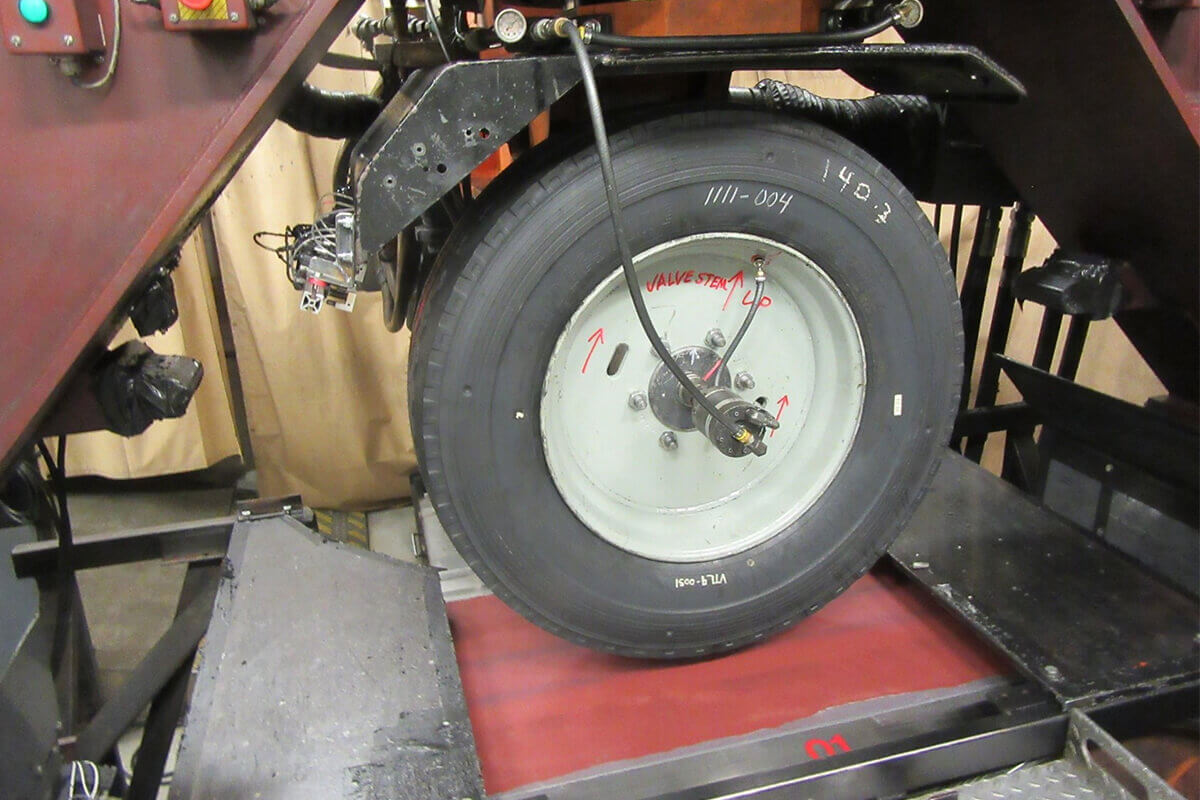
TransLink Benchmarking
The Global Center for Automotive Performance Simulation (GCAPS), in collaboration with Coast Mountain Bus Company and TransLink, helped to select tires for the City of Vancouver in an effort to improve their public transit system.

Trucking Fleet Concept of Operations
VTTI is currently working on a robust study of issues concerning the deployment of Automated Driving Systems (ADS) to showcase important aspects of how motor carriers can incorporate ADS-equipped vehicles into their operations.

Understanding the Impact of Technology: Do Advanced Driver Assistance and Semi-Automated Vehicle Systems Lead to Improper Driving Behavior?
There is some evidence that driver behavior may be detrimentally impacted by the use of advanced-vehicle technologies; however, more research is needed regarding the possible adverse effects of driving automation systems on driver behavior (e.g., distraction and overreliance upon the system).